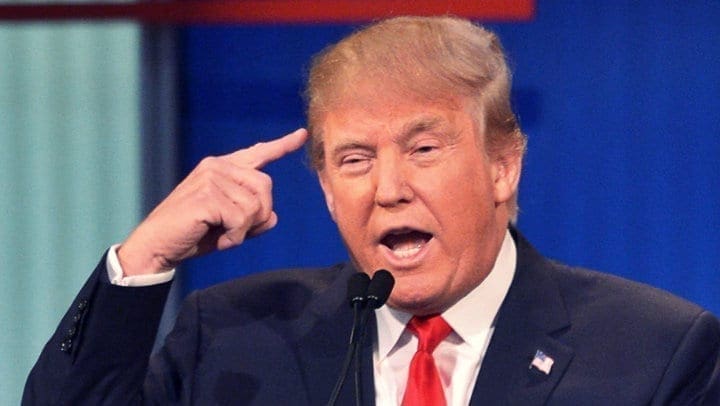Just as President Donald Trump entered church on Easter Sunday, he told reporters that “Mexico has got to help us at the border, and a lot of people are coming in because they want to take advantage of [Deferred Action for Childhood Arrivals or DACA].”
On Twitter, he also attacked the North American Free Trade Agreement (NAFTA), accusing Mexican leaders of doing little to “stop the big drug and people flows.” If nothing is done, the president then threatened, he “will stop their cash cow, NAFTA.”

As libertarians, we can all agree that both these policies should be brought to an end. Unfortunately, we all know that the president wouldn’t do it for the right reasons.
NAFTA, as you may recall, has been hailed as a “free market” trade deal between the countries of the North American continent. However, legitimate free trade does not require a treaty among nations.
As the Austrian economist Murray Rothbard once demonstrated, NAFTA did nothing but to hand over the control over trade to the government, helping it to further “cartelize” the North American economy.
Vilfredo Pareto wrote in “Traités de commerce of the Nouveau Dictionnaire d’Economie Politique” that treaties of commerce “have no reason to exist” if you believe in free trade. That’s because free trade tends to weaken and shrink governments as it requires fewer regulations and less control in the hands of bureaucrats to exist. Once treaties are implemented, more corporatist and protectionist policies are put in place. And that strengthens governments as it leaves the power to pick and choose trade winners and losers to them and only them.
To the same measure, immigration restrictions are often in place when trade restrictions and regulations are in place. Meaning that when trade is heavily regulated, workers see reasons to move between countries to seek better opportunities elsewhere.
As Ryan McMaken demonstrated in an article for the Mises Institute, trade restrictions will translate into a restriction of goods crossing the borders. That drives the wages down in Mexico while the cost of living goes up for Americans. As a result, Mexicans leave their home country and move north in search of better wages.
If governments hadn’t restricted trade between these nations by heavily regulating it, then the artificially created incentives that are key to the increase in immigration flow are no longer there.
But instead of replacing bad restrictions with even worse restrictions, the Trump administration would understand that removing all restrictions would be the only way to secure real free trade and yes, fewer immigrants desperate to cross the borders.




















